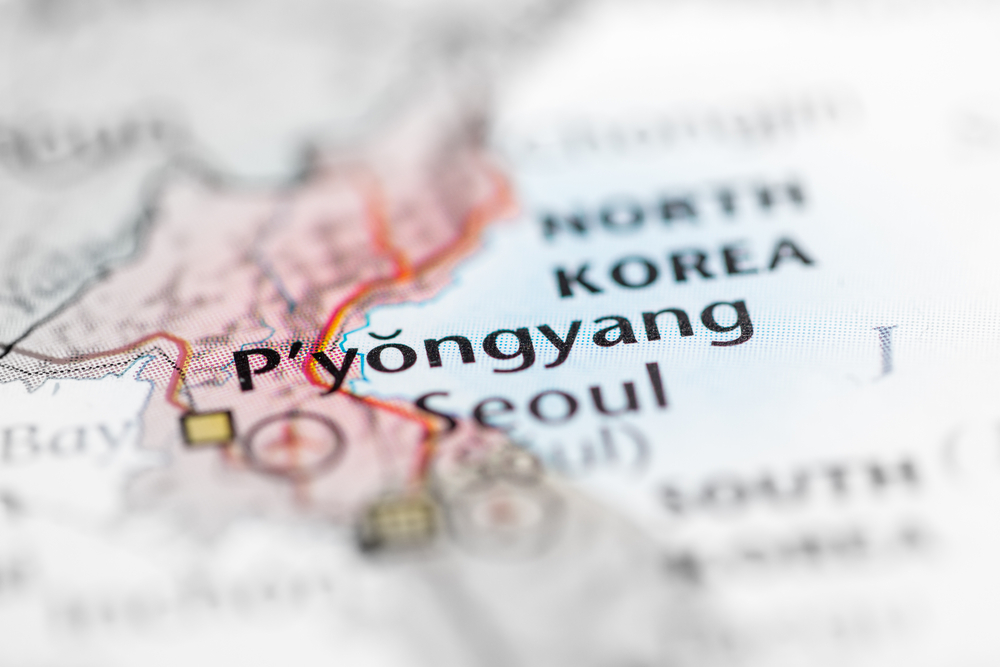
A panel of international policy experts told lawmakers Wednesday the best way to help rein in the nuclear ambitions of North Korea is through the intervention of the Chinese government, though none of the panelists expressed much optimism in Chinese assistance any time soon.
“I think getting China to participate in this (U.S. efforts to rein in the North Korea nuclear program) is going to be an enduring challenge,” John Parachini, director of the RAND Corporation’s Intelligence Policy Center, said during a joint hearing before the House Foreign Affairs Subcommittee on Terrorism, Nonproliferation and Trade, and the Asia and the Pacific Subcommittee.
Wednesday’s hearing came as President Donald Trump was announcing that U.S. intelligence has concluded that North Korea is closing in on a long-range missile with a nuclear warhead that could reach the United States and four days after Hawaii residents were falsely warned of an incoming missile threat.
Members of the panel agreed the North Korean regime possesses a greater threat than its efforts to develop a nuclear missile program and also has extensive capabilities in non-nuclear weapons, including chemical, biological and cyber.
“Any conflict on the Korean peninsula could entail the use of chemical or biological weapons, including a conflict short of a nuclear exchange,” said Parachini. “For this reason, it is important not to let attention to nuclear weapons cause us to overlook these other potentially lethal threats, to assess the extent to which North Korea may have these capabilities, and evaluate the threat they may pose. In addition, the use of (chemical or biological weapons) could easily escalate a conflict to the nuclear level.”
Several committee members worried the Trump administration’s threats of military action or stiffened economic sanctions are having an unintended effect on the North Korea President Kim Jong Un and may force him into a more bellicose position or a nuclear first strike.
“We have to make sure we don’t stumble into war,” said Rep. Brad Sherman (D-CA). He suggested North Korea could sell its nuclear or biological weapons and that the United States needs to be hyper vigilant to prevent that. Additionally, he supports a pledge of no first-use of nuclear weapons in exchange for an agreement for the North Korean regime to freeze its weapons ability.
But Sherman, like others on the committee, expressed support in working with China, by force if necessary by sanctioning Chinese banks that work with North Korea, in order to convince the North Korea allies to support a rollback on North Korea weapons programs. “We have to be willing to risk our trade relations with China in order to get China cooperation on North Korea,” Sherman said.
“The key to this whole thing is China,” said Rep. Steve Chabot (R-OH). He stated the U.S. needs to convince China we are willing to take drastic steps, like a cut off of trade, unless the Chinese cooperate to rein in North Korea’s weapons ambitions.
Lawmakers grilled the experts, which also included Anthony Cordesman, the Arleigh A. Burke Chair in Strategy at the Center for Strategic and International Studies; Anthony Ruggiero, senior fellow at the Foundation for Defense of Democracies; and Bonnie Jenkins, former Coordinator for Threat Reduction Programs at the State Department, on what they believe is the best approach to minimizing or eliminating the threats of the North Korean weapons programs.
Ruggiero said a key to reining in the North Korea threat is identifying the revenue flows that are financing the weapons buildup. “Most of it is coming from China,” he asserted, and suggested the U.S. coordinate efforts with other major powers to sanction Chinese banks doing business in North Korea in order to dissuade them from financing the Pyongyang buildup.
But Cordesman warned about pushing China too hard on North Korea, which, he explained acts as a critical buffer against South Korea and Japan. “We need to be careful it will not take steps to threaten the regime of North Korea or its status as a buffer. They (China) have different strategic interests than we do.”
Measures that could lead to the collapse of the North Korea regime would give China great pause, according to RAND’s Parachini.
Parachini had four recommendations to strengthen deterrence: strengthen and enforce the recent round of sanctions; help South Korea with chemical and biological defenses; explore adding a no-first-use of chemical and biological weapons pledge on the Korean Peninsula; and reinforce norms against the production, transfer and use of biological and chemical weapons capabilities on the Korean Peninsula.
Rep. Tulsi Gabbard (D-HI), said her constituents were frightened by last week’s false warning of an incoming missile and said decades of sanctions on the Korean regime have had little deterrent effect. “What can we do now?” asked the Hawaii congresswoman.
Ruggiero suggested the U.S. expand its own deterrent efforts to include multiple international partners, an initiative that was being discussed Wednesday in Canada.




